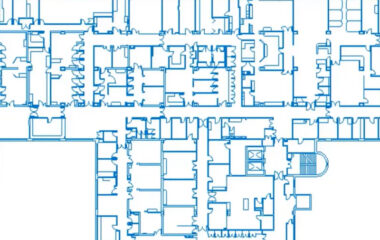Penny Brinsley, Account Director, Service Works Global, provides her perspective on what can be done to continue to ensure good health and safety at work in the FM Clinic featured in August edition of Facilities Management Journal.
The Retained EU Law (Revocation and Reform) Act 2023 has been passed into law with an accompanying schedule listing approximately 600 pieces of legislation that is set to be ‘sunsetted’ by the end of 2023. While health and safety legislation were not among that to be removed, there remains the possibility it could be revoked in the future. Amid this confusing picture, what can be done to continue to ensure good health and safety at work?
Ensuring a building is compliant and has the necessary risk assessments for work to take place is essential. Despite the difficult times we are facing with the legality of health and safety in the UK, its importance remains unchanged. Regulators and organisations alike will be checking that work permits are secure, up-to-date, and in line with current regulations around health and safety.
The importance of delivering exceptional health and safety cannot be overlooked by FMs. The average fine for businesses that are found guilty of not complying with health and safety regulations can be as high as £150,000. Larger organisations that commit serious offences can face even higher fines that reach closer to millions of pounds.
The reputational damage that comes when procedures aren’t in place can be even more costly than the fines themselves. Legal action and other risks can perpetuate the issue, leading to impacts on profitability and staff retention. Keeping up with compliance is essential and not a risk you want to take.
There are various processes that can help make compliance easier to manage. For example, a work permit system streamlines the procedure of requesting and obtaining work permits for contractors and building managers. It assists in creating permits, issuing team members with the relevant clearance documents, and attaching requirements for the job such as health and safety qualifications or equipment certifications.
Furthermore, integrating a work permit system with a building’s CAFM software comes with numerous benefits including better workflows and pre-set approvals that guarantee the right signoffs have taken place before work begins. This ensures accountability at each stage and creates a digital trail that can be easily accessed for regulatory checks.
This end-to-end permit approval and allocation solution helps to keep compliance issues at bay and ensures work permit documentation is organised. Permit applications can include hazards or equipment types, ensuring qualified and accredited contractors and operatives are carrying out the work, therefore maintaining health and safety, and upholding compliance.
A facilities manager can create a permit approval process that suits the needs of the organisation by creating as many stages of approval as necessary for its specific health and safety requirements. This means FMs don’t need a separate system for people carrying out maintenance on their site, saving valuable time and resources while keeping all contractors and building users safe.
When planning maintenance activities for your site through a CAFM-integrated work permit system, data is centralised, ensuring all relevant information is prepared for the necessary work and/or closures. This also enables better health and safety management, as all team members understand the nature of the work that is taking place, what potential precautions are required, and when work permits are needed.
Having an effective health and safety management system in place will serve as protection for building managers and contractors alike and ensure good health and safety precautions at work. Creating a safe space should always be the priority, no matter the law.
 UK
UK






